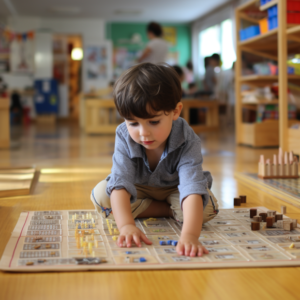The Montessori method of education, developed by Dr. Maria Montessori, is a unique approach that aims to foster the development of well-rounded individuals with a deep sense of empathy and consciousness. This educational philosophy believes in empowering children to be active participants in their learning journey, allowing them to explore and discover the world at their own pace.
Fostering Empathy and Understanding
In the Montessori classroom, children are encouraged to engage in activities that promote empathy and understanding towards others. They learn to appreciate diversity, respect differences, and develop a strong sense of community. Through group activities and collaborative projects, children learn the value of cooperation and teamwork, which are essential skills for building meaningful relationships in the future.
Cultivating a Sense of Social Responsibility
One of the fundamental principles of Montessori education is the cultivation of social responsibility. Children are taught to be aware of their impact on the environment and society and are encouraged to take responsibility for their actions. They learn about global issues, such as environmental conservation and social justice, and are inspired to be agents of positive change in their communities.
Emphasizing Peace Education
In the Montessori classroom, peace education is an integral part of the curriculum. Children are taught conflict resolution skills, empathy, and compassion towards others. They engage in activities that promote peaceful communication and the importance of resolving conflicts in a non-violent manner. By instilling these values at an early age, Montessori education lays the foundation for a more peaceful and harmonious world.
Nurturing Emotional Intelligence
Emotional intelligence is a crucial aspect of personal development, and Montessori education places significant emphasis on nurturing children’s emotional intelligence. Through various activities, children learn to recognize and express their emotions, as well as understand the feelings of others. This emotional awareness helps them build strong interpersonal relationships and cope with life’s challenges more effectively.
Cultivating a Love for Learning
In a Montessori environment, the love for learning is fostered through a child-centered approach. Children are encouraged to follow their interests and explore subjects that spark their curiosity. This intrinsic motivation to learn leads to a genuine passion for knowledge, making education a lifelong pursuit.
Promoting Independence and Autonomy
Montessori education prioritizes the development of independence and autonomy in children. They are given opportunities to make choices and take ownership of their learning. From daily tasks such as setting the table to academic challenges, children are empowered to become self-reliant and confident individuals.
Conclusion
The Montessori method of education goes beyond academics; it aims to create compassionate, empathetic, and conscious citizens of the world. By nurturing a love for learning, promoting social responsibility, and emphasizing emotional intelligence, Montessori education equips children with the tools they need to thrive in an ever-changing global society. As children grow into adults, they carry with them the values instilled during their Montessori journey, making positive contributions to their communities and the world at large.

